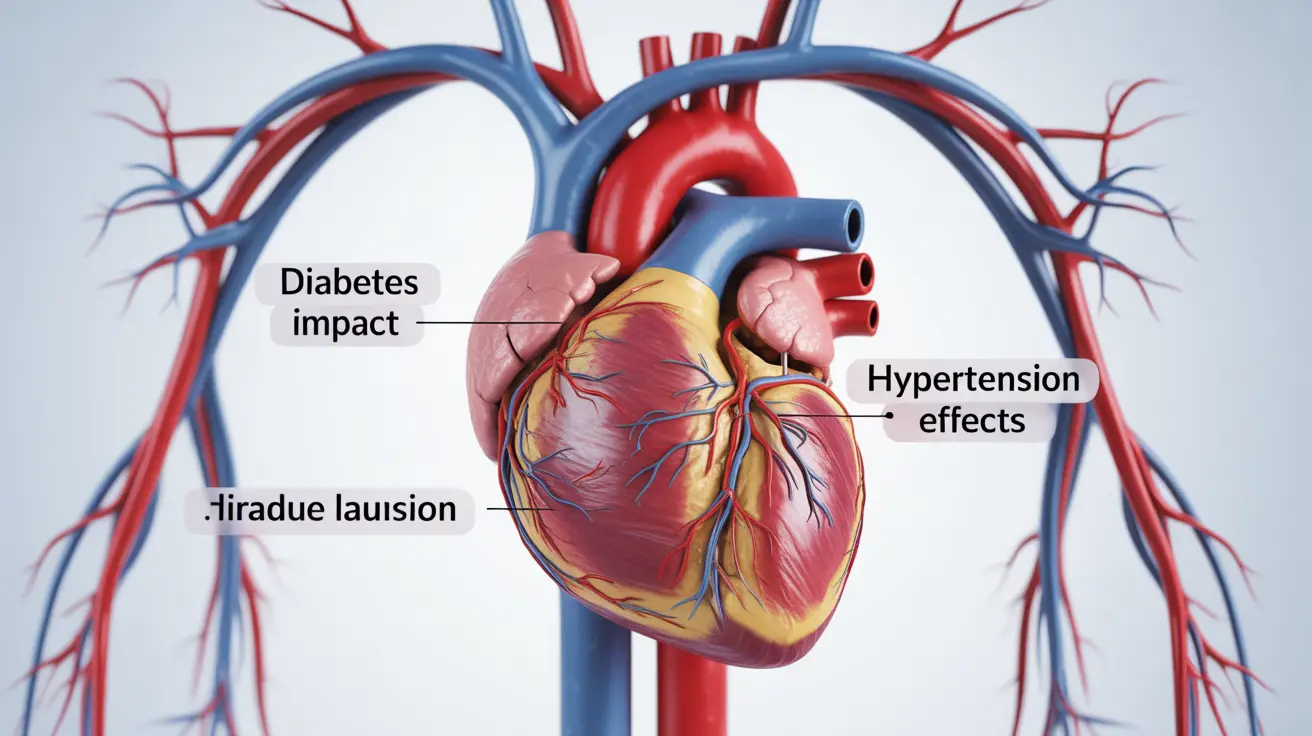High blood pressure and diabetes frequently occur together, creating a complex relationship that can significantly impact overall health. Understanding how these two conditions interact and affect each other is crucial for effective management and prevention of serious complications.
Nearly two-thirds of people with diabetes also develop high blood pressure, making it essential to recognize the connection between these conditions and take appropriate steps to manage both effectively. This comprehensive guide explores the relationship between diabetes and hypertension, their combined health impacts, and strategies for maintaining optimal health.
Understanding the Connection Between Diabetes and High Blood Pressure
Diabetes and high blood pressure share several common risk factors and mechanisms that contribute to their frequent co-occurrence. Both conditions can damage blood vessels and affect how the body processes insulin and regulates blood pressure.
The presence of insulin resistance in type 2 diabetes can lead to increased blood pressure by affecting the body's sodium retention and blood vessel function. Similarly, high blood pressure can make it more difficult for insulin to reach cells effectively, potentially worsening diabetes control.
Common Risk Factors and Mechanisms
Several factors contribute to the development of both conditions:
- Obesity and excess weight
- Physical inactivity
- Poor dietary habits
- Inflammation
- Oxidative stress
- Genetic predisposition
Health Implications of Having Both Conditions
When diabetes and high blood pressure exist together, they can significantly increase the risk of various health complications:
Cardiovascular Complications
The combination of these conditions can accelerate damage to blood vessels and increase the risk of:
- Heart disease
- Heart attacks
- Stroke
- Peripheral artery disease
Kidney Problems
Both conditions can damage the kidneys' filtering system, potentially leading to chronic kidney disease or kidney failure. The presence of both conditions accelerates this damage significantly.
Managing Both Conditions Effectively
Lifestyle Modifications
Several lifestyle changes can help manage both diabetes and high blood pressure:
- Maintaining a healthy weight
- Following a balanced, low-sodium diet
- Regular physical activity
- Limiting alcohol consumption
- Quitting smoking
- Stress management
Medication Management
Proper medication adherence is crucial when managing both conditions. Some medications may help address both issues, while others are specific to each condition. Regular consultation with healthcare providers ensures optimal treatment strategies.
Prevention and Monitoring
Regular monitoring of both blood sugar and blood pressure levels is essential for effective management. This includes:
- Daily blood pressure readings
- Regular blood sugar monitoring
- Routine medical check-ups
- Regular screening for complications
Frequently Asked Questions
- Does having type 2 diabetes increase my risk of developing high blood pressure?
Yes, type 2 diabetes significantly increases the risk of developing high blood pressure. The insulin resistance associated with type 2 diabetes affects blood vessel function and sodium retention, contributing to increased blood pressure.
- How do diabetes and high blood pressure affect each other and overall health risks?
These conditions can create a dangerous cycle where each condition worsens the other. Together, they significantly increase the risk of heart disease, stroke, kidney problems, and other cardiovascular complications.
- What lifestyle changes can help manage both diabetes and high blood pressure together?
Key lifestyle changes include maintaining a healthy weight, following a balanced diet low in sodium and sugar, regular exercise, stress management, limiting alcohol intake, and quitting smoking.
- Why do diabetes and high blood pressure often occur together in people?
These conditions share many common risk factors, including obesity, physical inactivity, and poor dietary habits. Additionally, the metabolic changes caused by diabetes can directly impact blood pressure regulation.
- How does having both diabetes and high blood pressure increase the risk of heart and kidney problems?
The combination of these conditions can accelerate damage to blood vessels and organs. This dual impact increases the risk of heart disease, stroke, and kidney damage more significantly than either condition alone.




